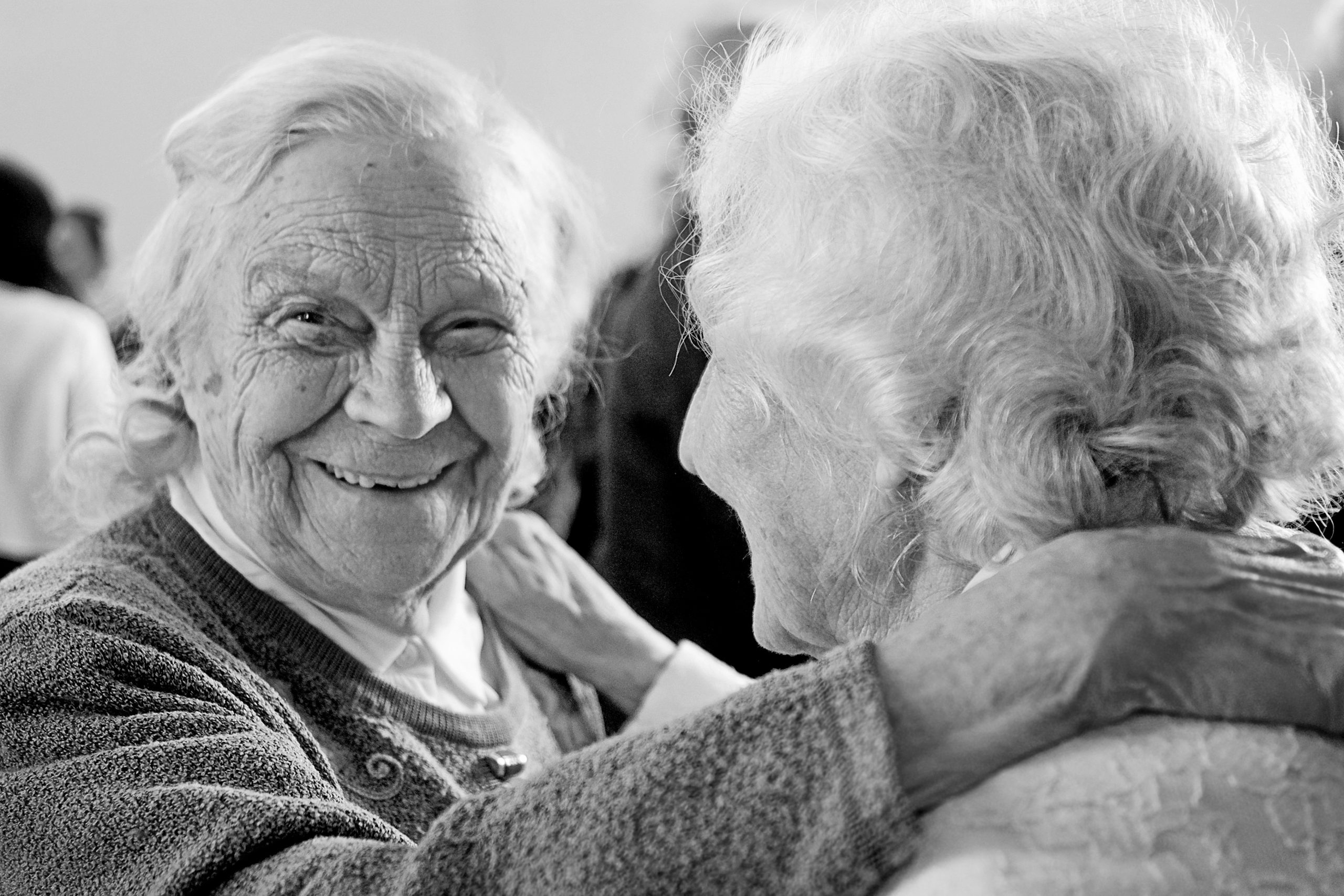A quasi-experimental mixed-method pilot study to check the efficacy of the “SOUND” active and passive music-based intervention on mental wellbeing and residual cognition of older people with dementia and dementia professionals’ burnout: a research protocol
Authors:
‘Sara Santini1†’ | Alessandra Merizzi1*† | Ioana Caciula2 | Maria Joao Azevedo3 | Albert Hera4 | Lena Napradean5 | Mirko Di Rosa6 | Sabrina Quattrini1
Purpose: The SOUND method offers an innovative blended intervention based on music circle-activities and cognitive stimulation approaches which was co-designed by musicians, health professionals, older people with dementia, family caregivers and researchers, for its application in dementia settings. The purpose of the paper is to describe the detailed procedure of the quasi-experimental pilot study.
Method: The experimental phase of SOUND uses a mixed-method design encompassing qualitative and quantitative observations, cognitive testing, self-report and interviewer-assisted questionnaires to investigate the effectiveness of the intervention for 45 people with dementia and 45 professionals (15 in every study country: Italy, Portugal, Romania).
Results: The pilot study will be the first implementation of the SOUND intervention aiming to investigate the feasibility and preliminary effects of the method.
Conclusion: The novelty of SOUND is its multicomponent method, including the most evidenced features for improving the wellbeing of participants.
1 Introduction
Dementia is an umbrella term to describe a set of cognitive, psychological and behavioral symptoms caused by brain diseases or conditions which are often progressive and non-reversible. The most common form of dementia, 60–70% of cases, is Alzheimer’s disease. Dementia is mostly prevalent in older age, with a significant increase over time as it almost doubles every 5 years after the age of 65 (World Health Organization, 2021). It is estimated that over 55 million of people live with dementia worldwide of which 9.780.678 in Europe (Alzheimer Europe, 2019; World Health Organization, 2021). This global epidemic is expected to almost triple by 2050 because of population ageing particularly in low and middle-income countries (World Health Organization, 2021).
There is no cure for dementia, although certain pharmacological treatments may slow down the progression of the disease. Nevertheless, evidence shows that pharmacological therapies for treating the psychological and behavioral symptoms of dementia (BPSD) have limited efficacy, severe adverse effects and increased mortality. Consequently, it is recommended to use non-pharmacological treatments (NPT) as a first-choice intervention (Magierski et al., 2020; Carrarini et al., 2021). In fact, NPT can be complementary treatments as, with a minimal risk for adverse effects, they can prevent and reduce BPSD, endorse quality of life, improve or maintain cognition and positively change brain activity (Dyer et al., 2017; Chalfont et al., 2018; Shigihara et al., 2020). A range of NPT are available, such as socio and psycho-educational approaches, cognitive and emotion interventions, physical exercise and sensorial activities (e.g., music, art and massage therapies). Other psychoeducational interventions are linked to training professionals and informal caregivers in order to reduce their stress/burnout and to improve their knowledge on dementia care (Barbosa et al., 2014; Briones-Peralta et al., 2020). Among all, music interventions targeted to older people with dementia seem to be the most effective NPT to manage BPSD (Abraha et al., 2017; Dyer et al., 2017). Indeed, music is associated to mental wellbeing, quality of life, self-awareness and coping in people with diagnosed health conditions and to reduced risk of depression in older people (Daykin et al., 2017). Moreover, music training looks like a powerful means for preventing the neurocognitive degeneration, since music enhances cerebral plasticity and induces the creation of new connections in the brain (Hyde et al., 2009; Habibi et al., 2017).
Musical leisure activities seem to have a positive effect on the cognitive, emotional, and neural function of older people both during normal aging (Klimova et al., 2017; Särkämö, 2018) and with dementia (Särkämö, 2018). Considering the latter, music can improve various aspects of their health and well-being: (a) cognition, especially verbal fluency and attention; (b) psychological aspects, such as mood, sense of self and identity; (c) mobility and coordination; (d) and behavior by reducing agitation, buffering isolation and strengthening communication (Brancatisano et al., 2019). Some studies show that music interventions can improve the cognitive state (Moreno-Morales et al., 2020), attention, immediate and delayed memory, executive function and gait speed (e.g., Domínguez-Chávez et al., 2019).
There is a great variety of music interventions including for instance, listening to music, playing instruments, and singing in chorus, but it is still not clear which is the most effective type of intervention and what are the factors determining their effectiveness. A relatively recent systematic review (Moreno-Morales et al., 2020) underlines that interventions involving listening to music have a greater positive effect on cognitive functions compared to active musical activities, such as singing or playing an instrument. In fact, listening to music implies a wide cortical activation by requiring the integration of perception of sounds, rhythms, and lyrics, alongside the simultaneous attention to the environment (Gaser and Schlaug, 2003; Soria-Urios et al., 2011; McDermott et al., 2012).
Many interventions, for example, are based on music therapy, i.e., an evidence-based practice carried out by trained and certified music therapists. Music therapy treatments can improve cognition (Bruer et al., 2007; Chu et al., 2013) and verbal fluency (Brotons and Koger, 2000; Lyu et al., 2018) whilst they can reduce associated symptoms of dementia such as depression (Chu et al., 2013) and agitation (Lin et al., 2010; Raglio et al., 2010; Vink et al., 2012; Tsoi et al., 2018). Music therapy can also have positive effects on clinical parameters by decreasing the systolic blood pressure of older people living in nursing home (Uğur et al., 2016).
Furthermore, group music-based treatments, i.e., based on passive and active music making exercises, not necessarily music therapy driven, can also reduce apathy (Tang et al., 2018), agitation (Choi et al., 2009; Ho et al., 2018) and depression (Ashida, 2000) and improve overall cognition (Cheung et al., 2016; Tang et al., 2018), verbal fluency and memory (Cheung et al., 2016). Thomas et al. (2017) demonstrated that individualized music treatments, such as personalized playlists, can have a positive effect on individuals’ mental health by reducing the use of antipsychotic medication with people with dementia.
Nevertheless, there is no agreement in the literature around the effectiveness of music-based intervention in different realms among older people with dementia, as research is still in initial stages. For example, Van der Steen et al. (2017) underlines that there is no evidence that music-based therapeutic interventions have effects on agitation or aggression, on emotional well-being or quality of life, nor on behavioral problems. Conversely, Moreno-Morales et al. (2020) conclude that there is evidence that music therapy can improve cognitive function in people living with dementia, that it can have a positive effect in the treatment of long-term depression and it can improve quality of life of people with dementia in the short-term.
The lack of evidence around the effectiveness of music interventions with OPDs, may depend on the studies small sample size, unclear assessment methods, the variety of music interventions (Van der Steen et al., 2017) and of tests used for the outcomes assessment (Moreno-Morales et al., 2020) and the absolute dearth of longitudinal studies that can demonstrate the long-term effect of music interventions on OPDs’ mood, cognitive and physical function (Moreno-Morales et al., 2020).
Non-pharmacological treatments, including music-based intervention, can have a positive effect also on healthcare workers (Cabrera et al., 2015). A qualitative study on music and dance interventions in dementia care found that healthcare staff had increased positive interactions, relationships, communication, sense of confidence, empathy, and an improved understanding of residents’ emotional state and experience of limitations (Melhuish et al., 2016). Such aspects, together with the team cohesion, work engagement and job satisfaction, contribute to preventing stress and burnout of healthcare staff (Maslach and Leiter, 1999; Öhman et al., 2017; Costello et al., 2018). However, there are few music-based treatments targeted to care professionals and none, to the best of our knowledge, involving both dementia care professionals and older patients.
Thus, even if the practice and part of the scientific literature, confirm the power of music in improving OPDs’ functions and care professionals’ well-being at the work place, the quality of evidence is low and so further research is needed (Dyer et al., 2017).
Considering the above, further studies should include emotional well-being and social outcomes to improve the knowledge about the effects of music on older people with dementia and dementia care professionals to support the implementation of music interventions as a care strategy.
This protocol has been designed to cover this knowledge gap by testing an intervention based on active and passive music activities delivered in circle with older people with mild cognitive impairment and mild to moderate dementia, and dementia care professionals. Particularly, the study aims to investigate two principal factors: 1) the efficacy of the SOUND intervention on OPDs; and 2) the impact of implementing the SOUND intervention on the DCPs who are delivering it as a novel group. Overall, the pilot study aims to assess the feasibility and preliminary outcomes of the protocol. The study is part of the SOUND project, funded by the Erasmus + program (contract 2021-1-IT02-KA220-ADU-000033494) and aimed at designing an original music-based curriculum for dementia care professionals and testing a pilot music-based intervention with OPDs in Italy, Portugal and Romania. At the time of writing this manuscript, we were about ending the training for dementia care professionals and planning the intervention that will be concluded in the three countries in early 2024.
- 1Centre for Socio-Economic Research on Aging, IRCCS INRCA-National Institute of Health and Science on Aging, Ancona, Italy
- 2Asociatia Habilitas – Centru de Resurse si Formare Profesionala, Bucharest, Romania
- 3Associação-Sons do Estaminé, Trofa, Portugal
- 4Associazione Centro Musicale Alessandro Orlandini-ACMO, Ancona, Italy
- 5Scoala de Pian by Lena Napradean, Bucharest, Romania
- 6Centre for Biostatistics and Applied Geriatric Clinical Epidemiology, IRCCS INRCA-National Institute of Health and Science on Ageing, Ancona, Italy
Photo: Artyom Kabajev su Unsplash


